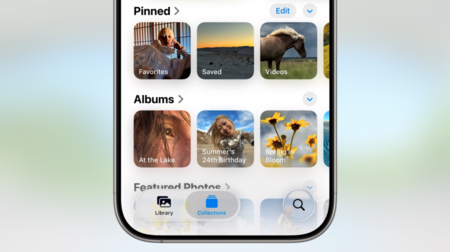Forget iOS 19 and remember this name: iOS 26, the beginning of a new era. At Apple’s WWDC 2025, the iPhone’s operating system took center stage, directly inspired by an interface users already know: Vision Pro. The company’s most niche device is now leading the way for its other products. Apple will unify naming and design language in this new phase.
Why iOS 26 and Not iOS 19?
The next logical step after iOS 18 would have been iOS 19, but Apple has changed course. Starting now, software platforms will be named by adding one to the release year. Since it’s 2025, that makes this version 26.
 Apple's new Liquid Glass interface on all its devices.
Apple's new Liquid Glass interface on all its devices.
The rest of the lineup will follow suit: visionOS 26, watchOS 26, tvOS 26 and iPadOS 26. Next year will bring version 27. The naming change reflects Apple’s push to unify its operating systems across devices.
Meet the Liquid Glass Interface

The first substantial change in iOS 26 is aesthetic. Apple has redesigned the entire system under an innovative design language called Liquid Glass. It’s based on transparency, rounded icons, and smoother animations. True to form, Apple’s attention to detail borders on obsessive. For example, the rounding of UI elements mirrors the physical curves of the iPhone.
The changes span everything from the Settings menu to the Control Center. Developers will need to update their apps to align with this new visual system.

Beyond transparency, iOS 26 brings dynamic changes to built-in apps. The address bar adapts to scrolling. The lock screen clock shifts based on foreground elements—if the depth feature is enabled. Apps like FaceTime, Gallery, and Camera have also received visual and functional updates.

What’s New in Apple Intelligence? We Understand You Now, Apple
Apple opened its keynote with a preview of its AI features. A major change: Developers can now configure their apps to access Apple Intelligence directly, privately, and offline. While this remains a work in progress, the demoed features are already tangible.
Most notably, Apple finally revealed its vision for AI: silent, helpful, and non-intrusive. It won’t announce itself—it will simply work.

- Messages, FaceTime, and Phone now include real-time translation.
- Messages can detect and filter spam.
- Phone can filter spam calls, display translations, and hold calls until the user accepts them.
 Visual Intelligence now recognizes screen elements and can interact with them natively.
Visual Intelligence now recognizes screen elements and can interact with them natively.
- Visual Intelligence is systemwide. Take a screenshot, and it will identify elements within the image. For example, a captured event poster can trigger an automatic Calendar entry with date and time.
- You can ask ChatGPT about on-screen content or search Google, Etsy, and Pinterest for similar images.
- AI also powers Genmoji and Image Playground, allowing users to generate new styles using ChatGPT. Apple Intelligence can also summarize order tracking emails, including those from outside Apple Pay.
Improvements for AirPods

Upgrading to iOS 26 brings major improvements to AirPods, especially in audio recording and remote camera functions. According to Apple, voice quality during calls is now much clearer—an area where AirPods lagged—when used with apps like Phone, FaceTime, and any CallKit-enabled app.
You can now use AirPods as a remote shutter for the Camera app. Press and hold the stem to take a photo or start recording. These features will be available on AirPods 4, AirPods Pro 2, and AirPods Pro 2 with ANC.
What’s new in iPadOS 26?

iPadOS 26 launches alongside iOS 26. Traditionally, iPadOS has been an iOS extension optimized for larger screens. This version brings it closer than ever to macOS, both in function and design.
- A new windowing system adds close, minimize and resize buttons. Users can freely move and resize windows, run multiple apps at once, and pick up where they left off thanks to position memory.
- Exposé, the Mac feature that shows all open windows, is coming to iPad.
- A new menu bar nearly identical to macOS makes its debut.
Like the other betas, iPadOS 26 is now available to developers. A public beta is expected in July.
Images | Apple
Related | WWDC 2025 Is Apple’s Most Challenging Event in Years



